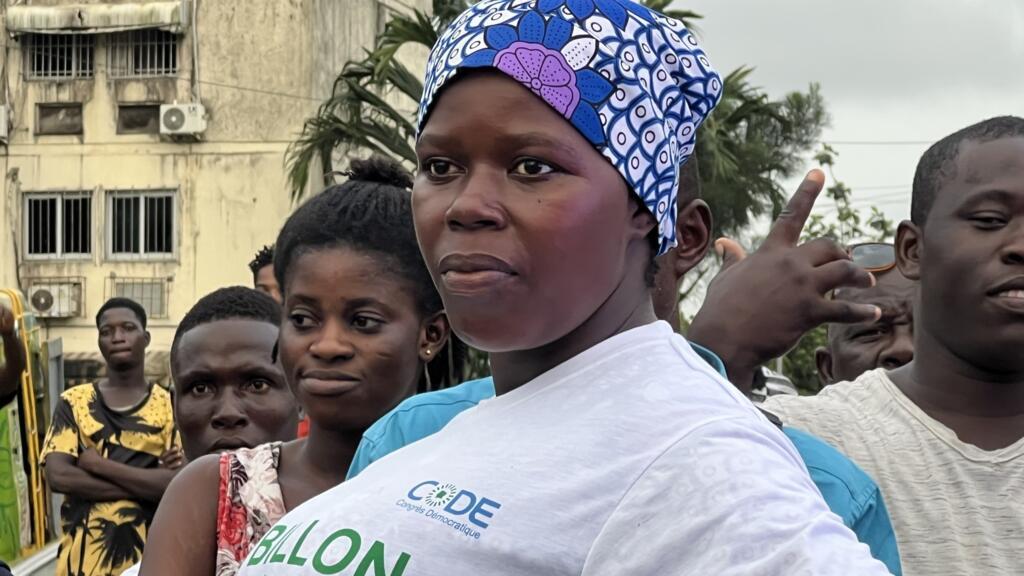
Abidjan, Côte d'Ivoire – Women have been highly visible in Côte d’Ivoire’s election campaign. They turn up at rallies, organise events and even run for president. But they remain under-represented in national politics and many hope this vote will finally open the door to real change.
Ivorians go to the polls on Saturday to choose their next president. Incumbent leader Alassane Ouattara, 83, is seeking a fourth term and faces four challengers. Two of those challengers are women.
On both the president’s side and in the opposition, women have become a driving force. Some attend every meeting. Others help run campaign offices. MPs, mayors and other elected women are also involved.
Even candidates’ wives, such as Henriette Gomis Billon – married to main challenger Jean-Louis Billon – are busy trying to win support.
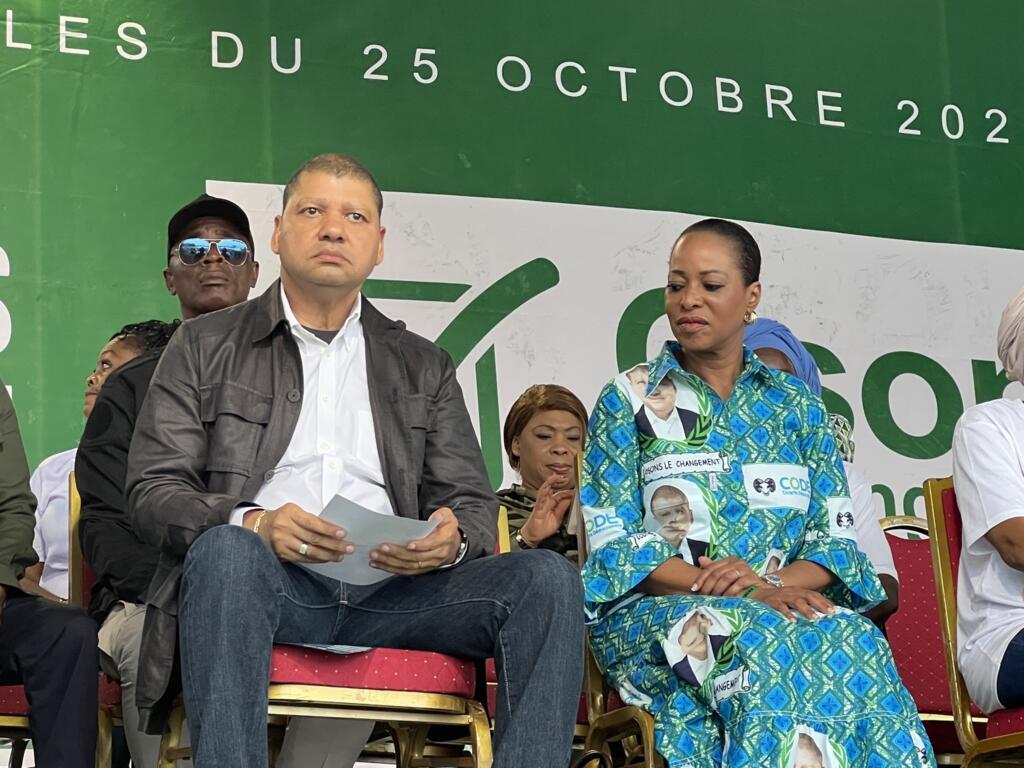
Female contenders
Two women are standing for president: Simone Ehivet Gbagbo, a former first lady and ex-wife of Laurent Gbagbo (who was excluded from the race along Tidjane Thiam), and Henriette Lagou.
Lagou told the media she hopes to embody a female alternative in a competition dominated by the traditional male figures of Ivorian political life. A former minister for women, she also founded the movement Two Million Girls for Gbagbo to support young Ivorian women and girls.
They are seen mainly as symbols of female involvement rather than likely winners. Still, their presence on the ballot shows how many women want a greater role in decisions that shape the country.
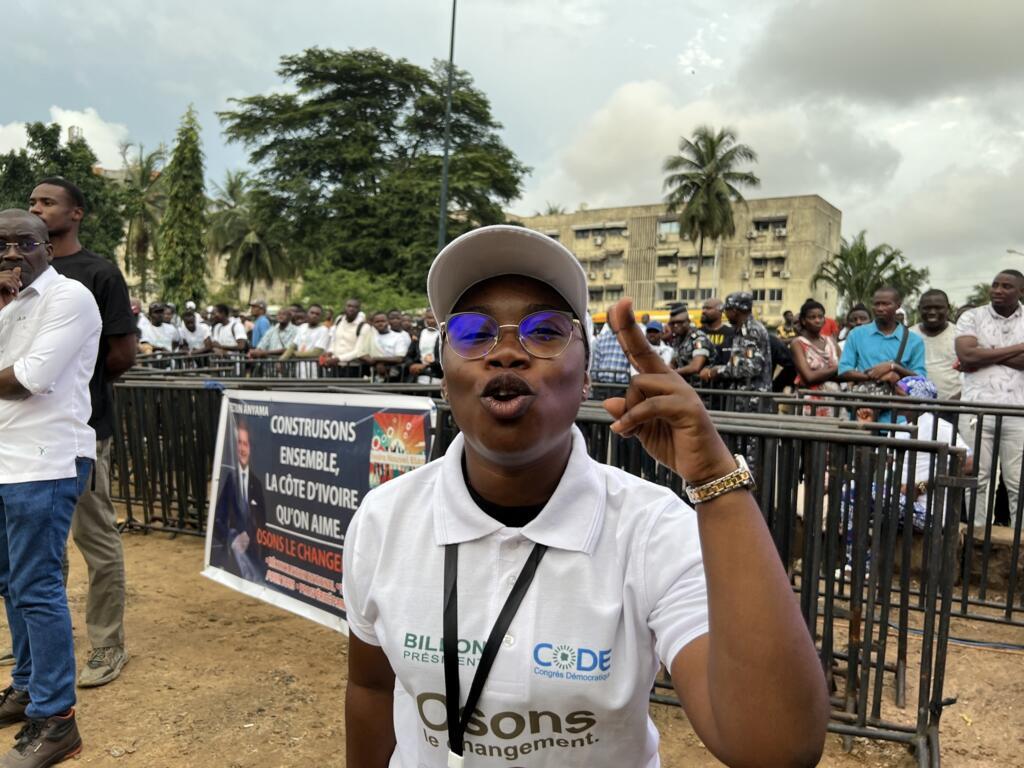
To appeal to female voters, both Ouattara and Billon have recruited dozens of women organisers and supporters.
Martine Vléon, national campaign director of the women working for Billon, said: “This page in our country’s political history will be written by women who stand tall, dignified and determined – women who know that Côte d’Ivoire’s future will not be built without them.”
She added that women have always had a strong role in Ivorian politics.
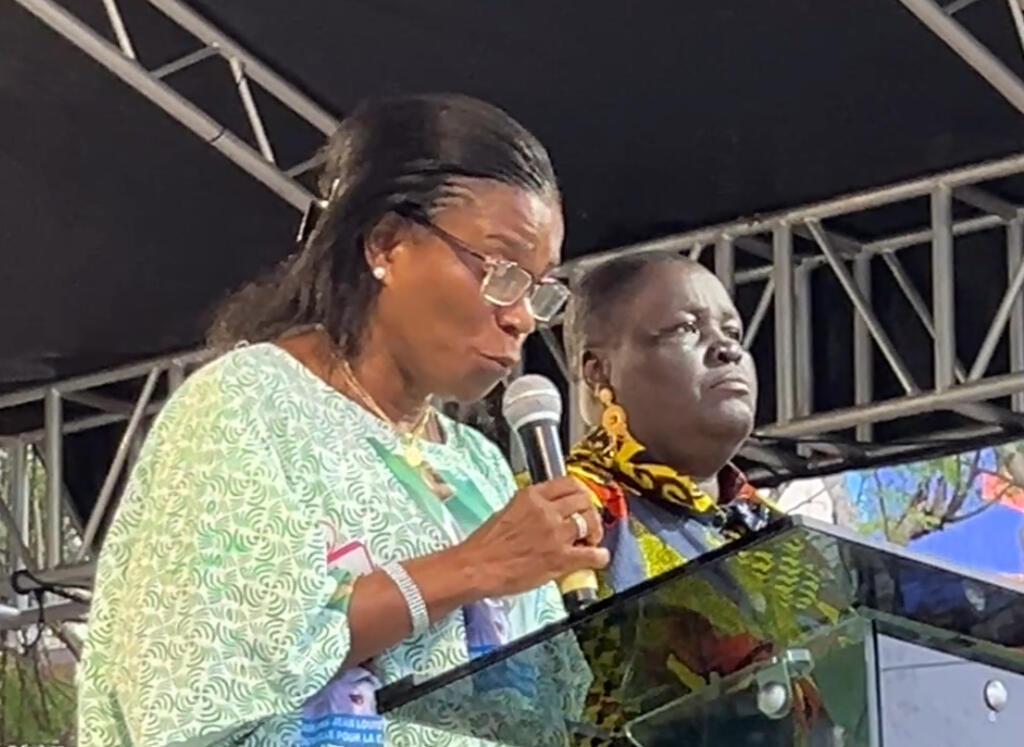
Voices on the ground
"We want peace in Côte d'Ivoire," a Billon supporter told RFI. "Someone who will give us peace. We want to live in tranquility, in joy, in love. That's what we're looking for. We don't want someone who will come and create problems, no... We want to work."
For Ouattara's women supporters, what matters is the legacy of the president.
"I’m here to support my Papa ADO (Alassane Dramane Ouattara), the father of orphans, the one who built today’s great Côte d’Ivoire, which now looks like Paris. I don’t need to go to Paris anymore; I stay in my country, thanks to ADO. My country is the most beautiful country in the world. Papa ADO, I adore you."
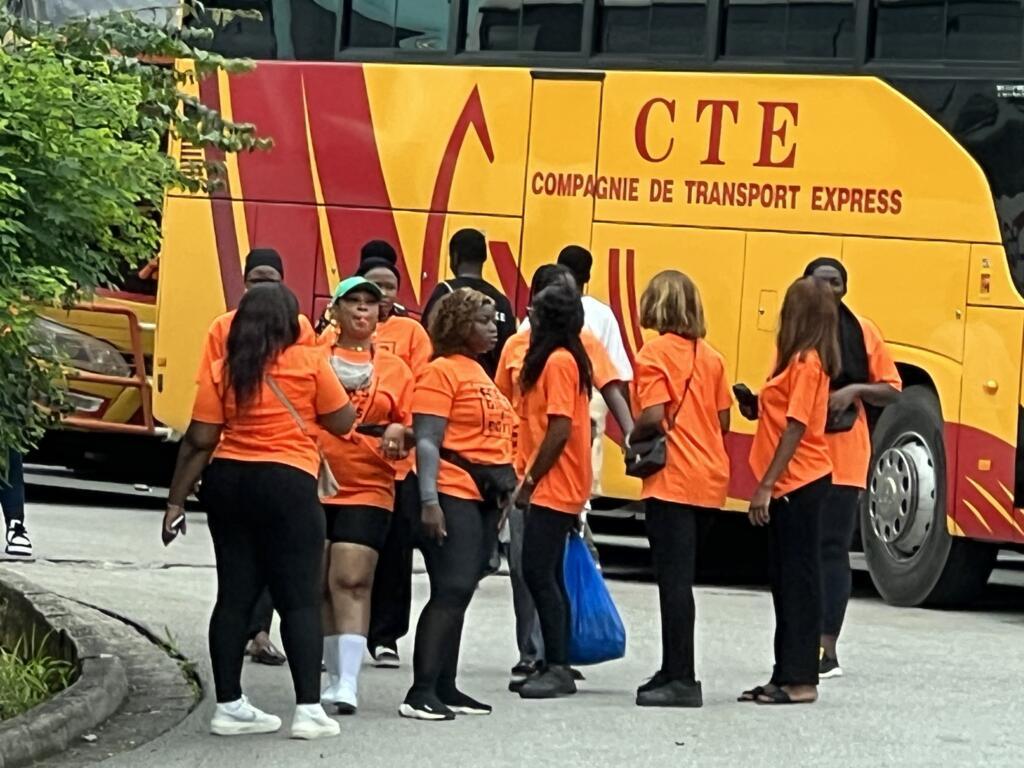
Another woman praised what she sees as progress.
“He’s a good president. Thanks to him, there are so many markets today, and jobs,” she told RFI. “We don’t struggle to sell anymore, you know what I mean?”
She said school and childbirth are free and added: “There are evening classes for adults. And today we no longer suffer to give birth like before, you see? That’s why we women come out today to say thank you. May God give him a long life. You don’t change a winning team!”
Representation gap
Women are often seen as those who hold families, businesses and society together.
Their political activism has deep roots too, including the Women's March on Grand-Bassam in December 1949, when women travelled from Abidjan to Grand-Bassam to demand the release of political leaders held by the French colonial authorities.
Still, their seats at the table remain limited. In 2023, women represented only 13 percent of members of parliament. They were 7 percent of mayors and barely 6 percent of regional elected officials.
A 2019 law set a 30 percent quota for women in list elections and it has encouraged more women to stand. But real parity is still far off.
“Ivorian women have always carried the country on their shoulders," Vléon said at a meeting in Abidjan.
"They feed our families, educate our children, care for our sick and participate in economic and social life with courage and selflessness.”
Many hope that after this campaign women will not only be visible – they will finally be heard.







